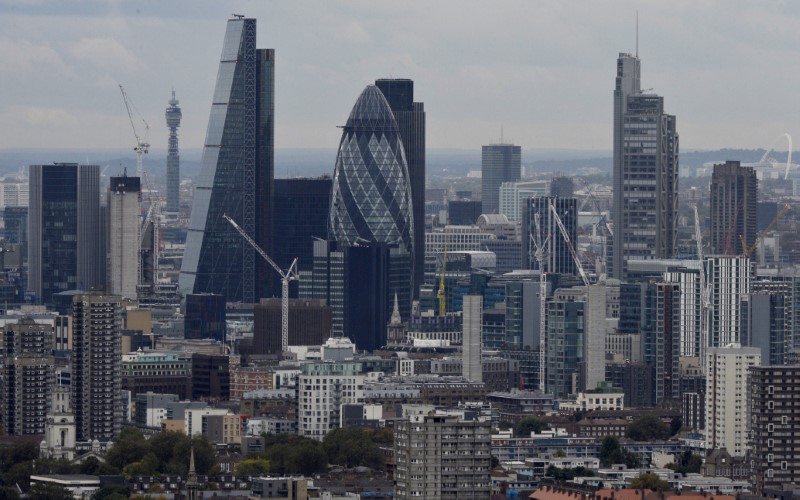By Clara Denina
LONDON (Reuters) - Mergers and acquisitions (M&A) activity involving British companies remained relatively robust in the first quarter of the year despite expectations of a slowdown ahead of the country's divorce from the European Union.
Bankers warned, however, that while the pound's fall since the Brexit vote in June has made British companies cheaper, lingering uncertainty about the impact of the country's split from Europe may make it trickier to value takeover targets.
Overall, the value of deals struck in the first three months was $39.96 billion, (32 billion pounds) according to Thomson Reuters data. That's a decline of just 2.5 percent from a year earlier, though European M&A climbed 16 percent in the same period to $215.3 billion, the highest for the first quarter since 2008.
"UK M&A activity has started strongly in 2017 ... foreign exchange made UK companies cheaper, and there is an overarching desire for growth, which is not easy for companies to deliver organically," said Jan Skarbek, head of UK investment banking at Citi.
The pound has fallen more than 15 percent against the dollar since the Brexit vote, hitting a 31-year low in October, and is down 11 percent against the euro.
The decline in the currency, however, has started to drive up inflation in Britain and increased the risk of interest rate rises, even though funding costs remain relatively low for now and liquidity is high.
With an uncertain economic outlook, the search for growth is likely to remain the main motivation for deals in the coming months, particularly for companies falling on hard times and finding it difficult to restore their performance alone.
"In this environment, we are likely to continue to see combinations that make strategic sense and enable companies to take out significant amounts of cost," said Simon Mackenzie-Smith, chairman of UK and Ireland corporate and investment banking at Bank of America-Merrill Lynch.
"The UK retail profit pool is likely to be under increasing pressure as we continue to import inflation as a result of the low valuation of sterling," Mackenzie-Smith said.
Merger activity between British companies was particularly strong in the first quarter.
Britain's biggest retailer Tesco (LON:TSCO) made a surprise 3.7 billion pound ($4.6 billion) bid for food supplier Booker, fund manager Standard Life (LON:SL) agreed to buy Aberdeen Asset Management and oil services firm Wood Group took over rival Amec Foster Wheeler.
However, an extended period of economic uncertainty and continued sterling weakness could produce some anomalies in how companies are valued, bankers said.
"Although UK economic indicators have remained positive, most boards believe the economic environment in the UK through the Brexit negotiations is unusually hard to predict, may be volatile and could be less favourable than it is now," Citi's Skarbek said.
Not all the transactions involving British companies have come to fruition over the past few months.
Anglo-Dutch consumer goods giant Unilever (LON:ULVR) received a surprise $143 billion takeover offer from Kraft Heinz in February, but it encountered stiff resistance and led to the U.S. food company's rapid retreat.

More recently, EU regulators blocked a planned merger between the Frankfurt and London stock exchanges, although the deal was already foundering due to differences over where the main headquarters should be in a post-Brexit world.